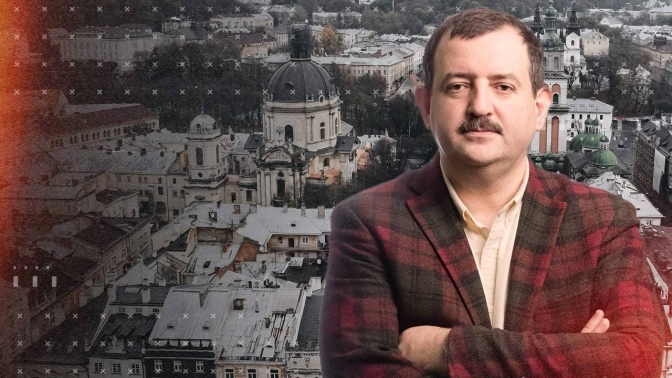
[For urgent updates please follow Ukrainian Freedom News on Telegram]
Because of the war, one nuclear plant and two thermal ones are currently not working. Taking open data into account, we can assume that the energy infrastructure is operating at half capacity. How do you assess the general situation?
The situation was bad even before the hostilities started. One of the basic factors that impacted it was the tariff policy and cross-subsidies. Simply put, it’s when non-household consumers subsidise household ones. The industry used to pay 5.50 hryvnias per kilowatt-hour, while the price for population varied from 0.9 to 1.6 hryvnias per kilowatt-hour. The difference between these tariffs was actually to be paid by the industry, and this led to a colossal debt.
Each year, these cross-subsidies were measured in the range of 40-50 billion hryvnias. At a time, when our industry started to grind to a halt, there is no one to subsidise. Hence, the following situation arises: in order for the distribution and trunk networks to function, to purchase fuel and maintain its processing, the tariff must be increased. Still, it must be paid somehow, so that we have funds to rebuild everything.
Another factor is the physical destruction of networks. Even if we are able to generate electricity, we cannot physically supply it to consumers. By autumn, we lost about a third of the generating capacities that were located in the occupied territories. This is the largest Zaporizhzhia nuclear power plant and thermal power plants, especially those in Enerhodar and Vuhlehirsk. The drop in industrial production compensated for the drop in generation by a third [by lowering the demand for electricity], so the conditional balance was maintained until autumn. Now, the population’s need for heating will increase sharply – this is a seasonal fragment. Many cities switched to electric heating, following the encouragements at various levels: people were suggested to install an electric boiler, because it was simple and cheap. Well, people did it... And we will have a situation when there is a great need for electricity, making it difficult to ensure its supply. So the heating season will be difficult.
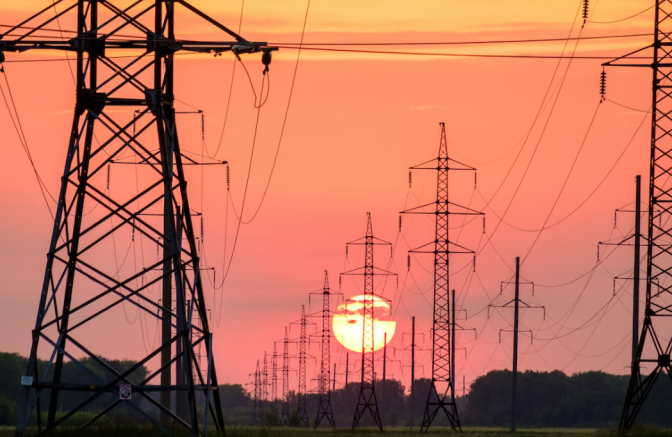
What is the situation regarding Lviv and the region? Will there be rolling blackouts?
It will probably be easier for settlements that have their own generating capacity to work and respond to these challenges. It will also be easier for communities and citizens who have invested in energy efficiency, home insulation, alternative sources, and heat pumps. But it will be more complicated for those who expected that everything would be decided for them. Obviously, local governments and energy supply companies will try to do what is needed, but they won’t be able to help everyone. For example, if we have a centralised heating, the city can influence it, but if there are individual heating systems – then it cannot. It would only try to provide gas and electricity as much as possible.
It is difficult to make any predictions not only in the Lviv region but elsewhere. The entire territory of Ukraine is under shelling. Russians can reach any point. The more small, distributed generation we have, the greater the chances of passing certain consumption peaks with less loss.
Once, there was a situation when gas became subsidised for the population, and now its price became much lower than the market value. At the same time, solid fuel – firewood, wood chips, orpallets – are not subsidised and, in fact, they are more expensive than gas in many cases. By further subsidies on gas, we demotivate people to do something for replacing it with other local fuels that become uncompetitive in our market and are exported to the European Union. Cities do not receive a subsidy from the state budget to compensate for firewood tariffs, only for gas. So there are frequent situations where projects using local fuels become unprofitable because gas is cheaper and subsidised five times. And this situation will not change until we equally subsidise heat, not a type of fuel. Now, in fact, we are subsidizing the energy sector of the European Union by subsidising gas. This is the real state of affairs.
In Lviv, the Sykhiv district in particular, the installation of individual heating points began. The head of the district administration, Halyna Hladyak, took part on our air and assured that it’s possible to save on costs significantly. Do you see perspective in the further implementation of these heating points?
I guess I’ll return to another question. People who want to have heating at home require individual boilers. But in reality, they do not need the one which requires a lot of additional costs – both investment and maintenance, rather the ability to regulate consumption and pay for what they consume. And it is fair. So, individual heating points in the house, aimed to regulate the consumption of heat from the city network to the house, is the first step towards the implementation of the proper heating system for apartments.
In the event of a power outage, it will be enough to ensure the installation of a diesel generator so that the heating system functions and water circulates in the whole building, rather than providing a generator and supplying electricity to each apartment.
What short-term solutions can have an effect: daily electricity savings, stoves in basements, tents for heating, the possibility of purchasing diesel generators, or mobile boiler rooms?
We are not talking about good and bad decisions, rather bad and worse solutions. There are simply no good things in a state of war when any kind of energy could be cut off. Each decision will be accompanied by more or less discomfort.
Mobile boiler houses are not really mobile, they are of a container type. This container can conditionally be transported, placed somewhere, and be turned on there. Still, it cannot be carried around the district and «turned on» alternately near certain houses.
You can install a diesel generator for the whole high-raised building, but buying it now is hardly possible as the market is in a frenzy. Usually, it is easy to find, although it’s an expensive pleasure costing millions of hryvnias. In addition, its operation is quite expensive. But such backup sources of energy are worth having to run the infrastructure. Even individual gas boilers will not work if there is no electricity: they have automatic ignition, circulation pump, etc. But it is definitely necessary to have a generator for several apartments in order to start such boilers and heat the premises. The cost of a kilowatt-hour of energy from the generator will range from 25 to 30 hryvnias, while now, the population pays 1.68 hryvnias. And it is necessary that there was enough fuel for those generators. That is, neither diesel nor gasoline generators will be able to replace the usual mode of electricity consumption.
Read also: Back to furnaces in old houses. The official on preparing the historical part of Lviv for the winter
What can be done reasonably cheaply and affordably? I advise you to take care of your apartment system using a car battery, which costs from four to five thousand hryvnias. You also need to have a car charger, which will cost 1-1.5 thousand hryvnias. In addition, buy an inverter, that is, a converter from 12 volts to 220. With these elements, within six to seven thousand, you can create a system that will provide a minimum of 220 volts for a certain period of time. This is enough to start the same gas boiler. And as soon as the electricity is turned on, the first thing you need to do is charge your battery.
Separate problems will occur with refrigerators. If there is no electricity for two or three days, your reserves will become a problem. You must also have something to cook on: take care of a gas burner or a small tourist stove.
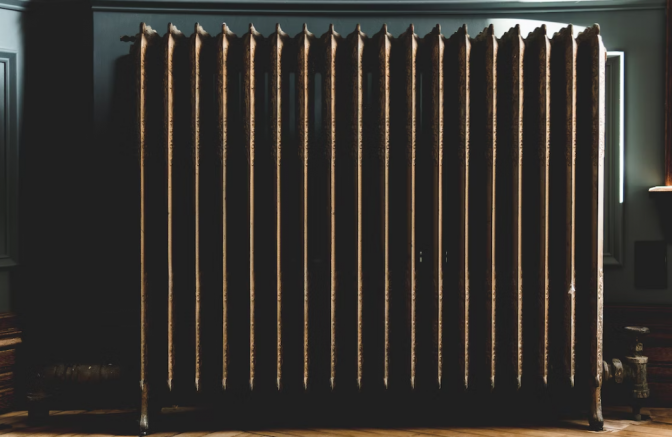
It is worth considering three stages of preparation for the heating season. The first one is to insulate your home as much as possible: cover the frames of old windows with a film, and if you have plastic, glue the frames with a layer of it – this will create an additional air cushion and save heat. You can cover part of the ventilation holes in the kitchen, in the bathroom and toilet, because the warm air rises up and escapes through the ventilation shaft. The apartment must be ventilated, but you may not need to use as many of these holes.
The second stage is to take care of an alternative source of heat. There is no need to talk about electrical devices, because you can personally see what the situation is. At least for the whole house, you need to have something to warm up, to equip a heating point. Have a gas burner that can at least boil water, or a small wood-burning stove to heat food. This is also worth buying a generator or a solar panel to get electricity when it is turned off, so that you can charge the radio, flashlight, and phone to keep in touch. You should also have power banks. It is possible to make a system based on a car battery, which I have already mentioned.
The third stage is to make a plan where you will go if the situation worsens and everything stops. Call your relatives, buy firewood for one or two thousand hryvnias. Take care of the saw and the axe. There will not be enough wood in the city to heat high-rise buildings, even if all the trees in the parks are cut down. Remember that during cold weather, the water in the pipes freezes, so you need to drain it. Salt water must be poured into all ceramics – sinks, toilets – so that the siphons do not freeze.
So far, climatologists predict a rather warm winter this year in Ukraine, so I am not inclined to think such cataclysms will happen. But, knowing our neighbours, I understand that the Russians will destroy the infrastructure at the worst moments. We must be prepared for them doing mean things and make life difficult for us.
What about long-term prospects, in particular, to secure for the next seasons? Are we talking about the development of alternative energy, or are funds for the thermal modernization of buildings included in the budget? During World War II, lend-lease included not only weapons, so is it possible to ask for some help through it now?
We live in an environment that changes very quickly. Two years ago, the European Union launched the «European Green Deal» program. Within this political initiative, the EU intends to become a climate-neutral territory by 2050. We are already in the status of a candidate country in the EU, so all their policies, which have the status of law and must be implemented, also begin to apply to us. Planning for our climate neutrality is very important, and our current decisions must take into account the challenges and tasks that are within the boundaries of European policy.
Energy efficiency and renewable energy sources are the pillars on which energy independence is built. The EU will withdraw from gas, it will be stored only as a reserve fuel. But the main focus is on energy efficiency, reducing energy needs, as well as on renewable sources. Obviously, weather-independent sources of electricity and backup should be added to this, namely nuclear and hydroelectric power plants. In my opinion, nuclear energy will remain on the list of sources that will be used.
We are approaching a situation where the preparation of hot water in the summer period will «shift» to the buildings themselves. It’s because in the warm season, it makes no sense to heat water by burning gas, when we have nowhere to put this heat. One of the steps can be the installation of solar and thermal collectors. The areas of flat roofs must be used for the production of electricity, they must be covered with different types of solar panels and use this energy for the needs of an individual house. The combination of solar batteries and heat pumps gives a colossal effect. Such a pump is the opposite of a refrigerator. It provides three to four kilowatts of thermal energy per kilowatt of electricity consumed due to its pumping from the environment. The large-scale introduction of heat pumps reduces the need for energy in the territory by three to four times, and at the level of a city, these are generally huge numbers. France has a national program, according to which heat pumps will be installed by the millions consumers until 2025.
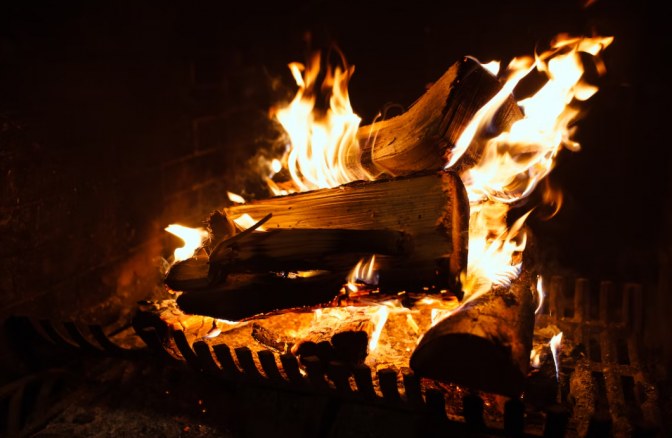
Is it possible and expedient to provide assistance for the introduction of such technologies for the next year?
There is expediency, but it’s a little worse regarding the possibilities. We have the war, a budget deficit, and being unable to finance this ourselves, we have to ask for money from the EU. Moreover, we need to develop industry and be able to produce these heat pumps on an industrial scale in our country, and not import them from China or America. There are enthusiasts, a number of companies that assemble them here from imported compressors. There is already the first experience of implementing such systems developed in Ukraine.
I think we will be very poor as a result of this war, and also quite dependent on foreign aid.
Do you accept that there are saboteurs working in our energy sector?
Certainly, there are such persons. The whole country has known for 15 years that Andrii Derkach, former head of Ukrainian nuclear power company «Energoatom», always had a Russian lobby. In the end, official suspicions were brought against him in this regard. I cannot blame anyone – this is the function of the police and the prosecutor’s office, but I am convinced that there are many «moles» in the energy sector. At the same time, there is the desire of the «patriots» to profit from this situation. When huge amounts of money, large volumes of oil, gas and other resources pass through someone’s hands, the temptation arises to make money on it. It would be a strong simplification to blame the Russians for everything, although their role in this is dominant. But the very transition of Ukrainian nuclear energy from Russian to American-Swedish Westinghouse nuclear fuel is a huge shift: both economic and geopolitical. One of the Russians’ motivations for seizing the Zaporizhzhia nuclear power plant was to «extract» this fuel, which is more efficient, and the technology, which they do not know. This, in particular, is industrial espionage, in my opinion.
One gets the impression that against the background of all the problems with electricity, the gas system is more stable. Do you not exclude the possibility of shocks and destruction of the gas supply structure?
Sure, it is also complex and vulnerable. This threat must be taken into account. Let’s turn to the experience of cities that were occupied in March-April of this year. It may happen that there will be no electricity, gas, or even gasoline in the city. So it is necessary to have a script on how to survive in such a situation, to provide at least the minimum needs.
Everyone is looking for some basic solutions, but with the end of the heating season in April, you will have to think about what to do next and prepare for the next season. And we make it until July, or even September, and only then do we start doing something. This year was unique, because both people and journalists started asking [about energy] already in July, and that’s a good thing. However, we do not understand what will happen in the near future and how the situation will look. Therefore, it is difficult to hope for any investments, Ukrainian and foreign banks do not issue loans. No investments will be made until the security situation is resolved. We must hope for help, some generators, turbines from the allies and plan for the population’s safety in view of such risks.
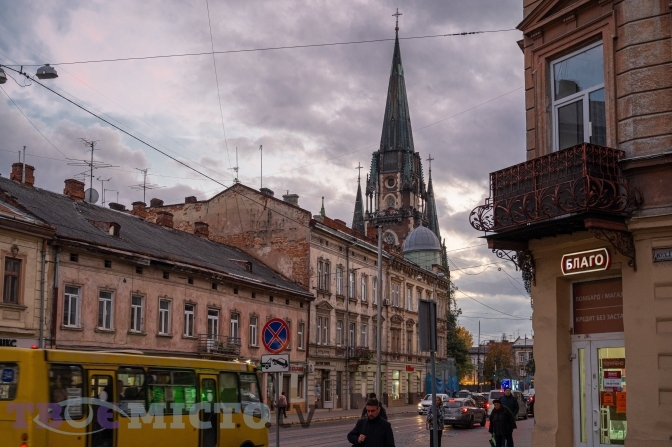
According to government directives, we were supposed to provide 19 billion cubic meters of gas in the summer, we were 5.6 billion short of this safe reserve to get through the heating season normally. I have a rough idea of where the state oil company «Naftogaz» will get gas from. But this can only be done in the short term, because I am not sure that it will be the right decision in longer perspective. The Americans’ request for the delivery of three billion cubic meters of gas looks a little strange. At that time, other countries paid 2,300-2,500 dollars for a thousand cubic meters of blue fuel, and Ukraine wanted to get it for free, although it is about six billion dollars.
As for the lend-lease, Americans have many mobile cogeneration units capable of generating not only electricity but also heat. They have companies that have been trying for 10 years to sell us this equipment for Kyiv, Kryvyi Rih, and other cities. In the end, we went to Kazakhstan and delivered it to some companies, shopping centers – where the consumption was large. They generated heat and electricity thanks to such high-tech systems. When gas was cheap, it was good from an economic point of view, and now also from the security point of view. But such systems are present, and they can be deployed in less than two weeks.
Sergiy Smirnov spoke
Text: Marichka Ilyina, translated by Vitalii Holich
Full or partial republication of the text without the written consent of the editors is prohibited and considered a violation of copyright.
Follow us on Facebook and Instagram. Lviv Now is an English-language website for Lviv, Ukraine’s «tech-friendly cultural hub.» It is produced by Tvoe Misto («Your City») media-hub, which also hosts regular problem-solving public forums to benefit the city and its people.








